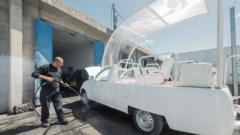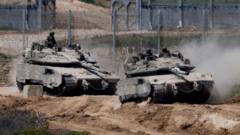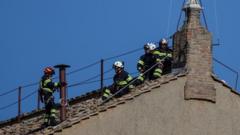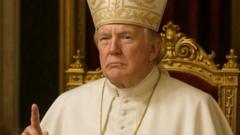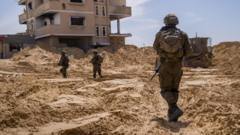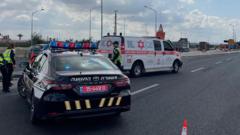Cardinal Pierbattista Pizzaballa, the Latin patriarch of Jerusalem, has gained attention as a possible successor to Pope Francis after his bold offer to become a hostage in exchange for kidnapped Israeli children during the Israel-Hamas conflict. With decades of experience in the politically charged Middle Eastern environment, Pizzaballa is seen as a potential bridge between Eastern and Western Christianity. However, his outsider status and relatively young age raise concerns among traditionalists about his readiness for the papacy.
Cardinal Pizzaballa: A Contender for the Papacy?

Cardinal Pizzaballa: A Contender for the Papacy?
Amidst global tensions, Cardinal Pierbattista Pizzaballa emerges as a prominent figure in the race for the next Pope.
Cardinal Pierbattista Pizzaballa, the Latin patriarch of Jerusalem, has made headlines recently due to his courageous proposal to assume the role of a hostage in exchange for the release of Israeli children taken during the Hamas attack on October 7, 2023. This statement, publicized by Vatican News, has positioned Pizzaballa as a serious candidate for the papacy. As an Italian with deep ties in a region significant to Christianity, Judaism, and Islam, he could revitalize papal authority that has rested outside Italy for nearly half a century.
Despite his qualifications, critics voice apprehension over his relatively youthful age of 60, concerned that he may not have the requisite longevity for such a critical role. Cardinal Pizzaballa's lengthy tenure in the Middle East has granted him unique insights, yet it also renders him somewhat of an outsider to the established Vatican circles. His conservative leanings may please traditionalists, though his exact stance on contentious church issues remains mostly ambiguous, leaving cardinals to ponder the potential outcomes of a Pizzaballa papacy. As the search for Pope Francis's successor intensifies, the implications of a new leader from the heart of Jerusalem will undoubtedly shape the Church’s future.
Despite his qualifications, critics voice apprehension over his relatively youthful age of 60, concerned that he may not have the requisite longevity for such a critical role. Cardinal Pizzaballa's lengthy tenure in the Middle East has granted him unique insights, yet it also renders him somewhat of an outsider to the established Vatican circles. His conservative leanings may please traditionalists, though his exact stance on contentious church issues remains mostly ambiguous, leaving cardinals to ponder the potential outcomes of a Pizzaballa papacy. As the search for Pope Francis's successor intensifies, the implications of a new leader from the heart of Jerusalem will undoubtedly shape the Church’s future.

